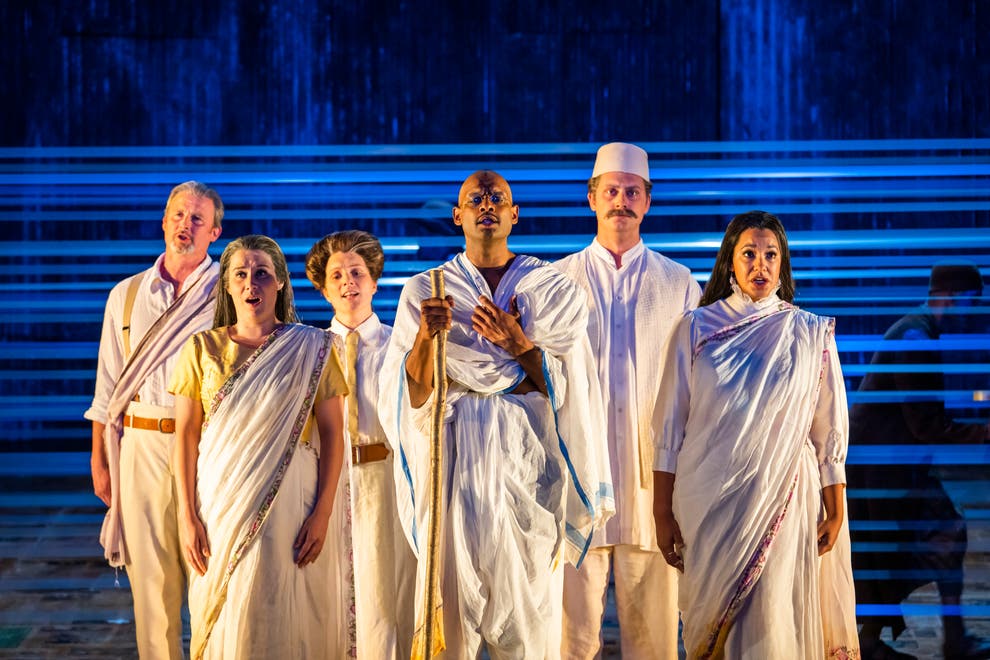
It may sound like sacrilege to make a negative comment about Philip Glass’ Satyagraha as it has achieved iconic status, but while this remains a glorious piece of music and stunning theatricality in the Phelim McDermott staging, the 40 plus year old opera seems dated.
First staged by English National Opera back in 2007, this has proven a hugely popular work to reopen the London Coliseum after Covid, but the cynic in me did slightly wonder if some of the audience were applauding what the opera is about rather than the actual performance.
I say this as I sat with lots of people around me who chattered through parts of the performance, took lots of photos and filmed some parts, and I surmises were there because it was about Ghandi. Quite why they stood and cheered at the end when they had chattered through much of it mystified me.
Anyway, enjoyable as the show is, and it is, the opera and the production are less satisfying than ENO’s production of Glass’s Akhnaten that, along with Einstein on the Beach, forms the composer’s Portrait Trilogy. Yes, it is full of fun and highly effective puppets, some clever theatrical techniques that do aid the story telling, and the music is sublime but the work which is, simply put, about Gandhi and other spiritual / non-violent resistance figures in modern history. However, it lacks the sensual, mesmerising quality of Akhnaten, and does not hold together as well with some rather wearisome sections towards the end.
The work is all vaguely narrative and chronological, with the brief libretto, from Constance De Jong, coming from various sources including Bhagavad Gita and is sung in Sanskrit, with English language scene-setting projections on the backdrop. None of that helps much as if you do not know about the legendary figures portrayed at the start, you will won’t at the end of the opera. The final part on the life of Martin Luther King is the least satisfying, both musically and theatrically, compared with what has come before and the ending is a little hackneyed.
What most dates it is that, perhaps sadly, society and historical revisionism has developed enormously over the last 40 years (including discrediting Ghandi for racism for example and black civil rights now mired in the Black Lives Matter cancel culture movement.) I kind of wonder whether this opera will even get to be performed should this nihilist phase of history continue.
Yet the music remains beautiful, relaxing and the minimalism in orchestra and vocal is the strength and joy of the work. Conductor Carolyn Kuan delights with this esoteric experience. The chorus is powerful, and the principals cast of nine impossible to fault. Sean Panikkar may look more like an Indian Bollywood hunk than images we know of Ghandi, but he sings the role exquisitely.
Welcome back ENO. You have been missed.
Main image: James Cleverton, Verity Wingate, Gabriella Cassidy, Sean Panikkar, William Thomas, Felicity Buckland Image by Tristram Kenton.
London Coliseum, to Oct 28